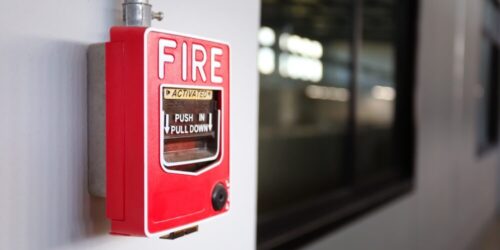
9.5.23 – SSI – Ken Kirschenbaum
The legal obligation to install and maintain a fire alarm in good operation is generally imposed by law on the property owner.
Much has been made of the issue of alarm companies’ liability for installing noncode fire alarms. In the first instance, this is a legal question, but it is fraught with factual issues.
What do the facts have to do with the liability exposure for the alarm company if there is no dispute that the fire alarm does not meet code?
The legal obligation to install and maintain a fire alarm in good operation is generally imposed by law on the property owner. It’s the property owner who needs a Certificate of Occupancy to occupy the building.
A Certificate of Occupancy isn’t going to be issued by the AHJ — in this case the building department (which may require the fire department to sign off on the fire alarm system) — unless the building meets all building code requirements, including the fire alarm.
Thus, the property owner surely faces consequences if construction begins without a permit and if the property is occupied without a Certificate of Occupancy. But what about the fire alarm installer?
In many, if not most, jurisdictions, there is a specific license requirement to install fire alarms, especially commercial fire alarms. The AHJ is usually the fire marshal. Installing a fire alarm without a fire alarm license is likely illegal, a crime of some degree.
If the fire alarm installer is licensed, then the AHJ has an additional enforcement club — seeking fines, suspension, or revocation of the fire alarm license. A fire alarm installer might be issued a criminal summons for working without a permit and the entire construction project can be shut down if there isn’t a permit issued.
We are not discussing the consequences of a fire alarm installer filing plans and getting a permit, and then intentionally installing a fire alarm that fails to adhere to the plans and deceives the AHJ into approving the installation. The criminal and civil liability should both be evident.
Mistakes, however, would result in possible civil liability if there is a loss and negligence can be established, but not likely criminal consequences for a mistake that is not intentional or hidden after the fact.
More About Legal Ramifications of Noncode Fire Alarms
How does the contract between the owner and the fire alarm company affect the criminal or civil liability? Proper contracts designed for commercial fire alarm installation and service, such as The Fire All in One (alarmcontracts.com), address noncode fire alarm installations.
It puts the onus on the owner to specifically request, insist, on a particular installation that is not to code despite glaring recommendations by the fire alarm company to the contrary. It also requires the owner to indemnify the fire alarm company for any damages. That, however, is not going to be a very effective remedy if the alarm company is facing criminal charges and loss of license.
Clearly, it’s not good practice to install noncode, noncompliant or unpermitted commercial fire alarms, no matter what the contract says. The Fire All in One has the provision only because too many alarm companies will contract for and install noncompliant fire alarms, for whatever reason, though customer budget is almost always the culprit.
As for an alarm company, that doesn’t know the difference, a phrase that comes to mind (thanks to my buddy, Bart Didden), stay in your wheelhouse and your lane. Don’t install fire alarms at all if you’re not licensed and don’t know code — because it’s not on your Dick Tracy watch!
Civil consequences will depend on the loss and the damages. If you are a licensed fire alarm company that installs contrary to code requirements, you will be exposed to damages of all sorts. Damages for an undetected fire are easy to understand.
But be mindful of causing construction delays if the AHJ shuts down the job, or if a Certificate of Occupancy is delayed or revoked. The cost of a fire watch could be significant if the fire marshal even permits the building to remain open pending the installation of a proper fire alarm pursuant to approved plans.
Nonfire alarms are a different matter. These systems won’t involve code requirements, will be governed by the contract with the customer and your liability will be for your failure to perform or your negligent performance. Just keep in mind that does include design of the system since you’re the security professional.
